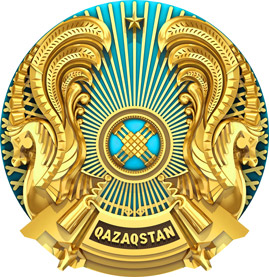Domestic Policy | Business & Investment
Investment Policy
Topics in this Section

Due to political and economic stability in Kazakhstan, the abundance of natural resources, as well as high annual economic growth over the past several years, foreign investors continue invest in Kazakhstan and view it as a favorable place to do business. One of the most important issues to foreign investors is the repatriation of their profits and the tax implications of their income. Civil legislation allows foreign investors to operate in Kazakhstan through either a local branch of a foreign company or a local subsidiary established as an independent legal entity under the laws of Kazakhstan. Naturally, a foreign investor should determine which type of investment structure is preferable.
Foreign Investors’ Council
The Foreign Investors’ Council (FIC) is an advisory body established by the Order of the President of the Republic of Kazakhstan to promote direct dialogue between the government and those who invest in Kazakhstan in order to efficiently address key issues related to their investment activities in the country, to improve the investment climate of Kazakhstan for the benefit of foreign investors, local and national companies, the economic development and wealth of the country and its people.
The FIC is chaired by the President of the Republic of Kazakhstan, who supervises its activities, including approval of the Agenda and chairmanship at the Council’s plenary sessions.
The major objectives of the FIC
Developing and submitting recommendations to the President and Government of the Republic of Kazakhstan on key investment and economic development issues. Analyzing and discussing other core investment policy issues upon the instruction of the President of the Republic of Kazakhstan.
Kazakhstan is represented in the Council by the following government officials: Prime Minister, Chairman of the National Bank, Deputy Head of the President’s Administration, Deputy Prime-Minister, Minister of Foreign Affairs, Minister of Industry and New Technologies, Minister of Finance, Minister of Economic Development and Trade, and Head of the Executive Body of the Council (Chairman of the Committee on Investments of the Ministry of Industry and New Technologies).
The foreign side of the Council is represented by top managers of international organizations, economic and financial institutions, foreign companies and corporations. The Plenary Sessions of the Council are conducted once or twice a year. For more information about current members of the FIC, please visit www.fic.kz. Investment Ombudsman
Kazakhstan is putting in its best efforts to ensure the continuing improvement of its business and investment climate. The establishment of a task force on the protection of rights of foreign investors, the so-called “investment ombudsman”, is the most recent example of those efforts.
The institution of Investment Ombudsman was established in the Law on Investment adopted in 2014. In December 2015, Minister of Investment and Development Asset Issekeshev was appointed as the the Investment Ombudsman of Kazakhstan. Issekeshev began his duties January 1, 2016.
The institution is based on international best practices, in particular on the successful experience of South Korea where this institution had been functioning since 1999 and helped resolve all 4,500 complaints between 2000 and 2012 without any one of them reaching the courts.
Anyone who invests in Kazakhstan, or an embassy on their behalf, will be able to appeal to the investment ombudsman on specific issues and problems and file requests both through the Secretariat, located at the Investment Committee of the Ministry of Industry and New Technologies, and the Investors’ Support Center at the National Agency for Export and Investments KAZNEX INVEST, which is a part of the structure of the Ministry of Industry and New Technologies of Kazakhstan.
Investor's Guide
Kazakhstan’s Ministry of Investment & Development has published a 2016 Investor’s Guide. Investors will find actionable information about investment incentives, favorable tax regimes, special economic zones, priority sectors and available government resources. The guide serves as a useful market entry resource for companies looking at or new to doing business in Kazakhstan.



